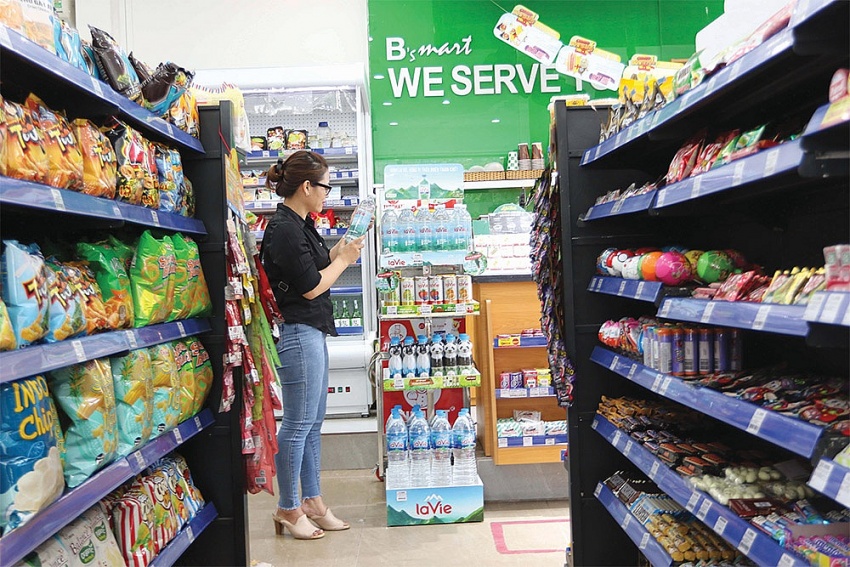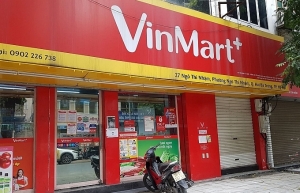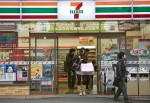Convenience stores remain aggressive
7-Eleven, the Japanese convenience store chain, announced last week plans to close over 400 “underperforming” locations across North America. The move coincides with acquisition efforts by Alimentation Couche-Tard, the Canadian parent company of Circle K.
The group made a $38.7 billion bid in August to acquire 7-Eleven, which was rejected, according to Bloomberg. However, on October 9, the company raised its offer to $47 billion. If successful, it would mark the largest overseas acquisition by a Japanese company, as reported by Reuters.
In Vietnam, Circle K is a leading player, with 476 locations nationwide. It was the first foreign convenience store chain to enter the market in 2008. Circle K saw strong growth between 2021 and 2022, reinforcing its leadership in the sector with a focus on home delivery services. A key differentiator for Circle K is its 24/7 operations, which have made it a favourite among younger customers, including students and office workers.
 |
| Circle K offers a rare 24/7 service, while chains like GS25 push their South Korean-origin products, Photo: Le Toan |
“In 2022, the chain posted its strongest revenue growth, reaching $160 million and overcoming two years of accumulated losses. It was the only foreign chain to report profits exceeding $4 million,” a Vietdata market report highlighted.
7-Eleven, which entered the Vietnamese market in 2017, operates 118 stores, mainly in Ho Chi Minh City. Compared to other foreign convenience store giants, 7-Eleven had a slower start, with gradual expansion in its initial years. However, from early 2023, it ramped up its growth, adding 38 new stores in just one year - a significant increase from the 79 stores opened over the previous six years.
Vietdata noted, “7-Eleven is among the few businesses showing stable revenue growth since the post-pandemic period.” Its revenue rose by 26 per cent in 2022 and 37.4 per cent in 2023. Despite this, 7-Eleven reported losses exceeding $4 million last year.
Expanding aggressively despite significant losses has become a common strategy in Vietnam’s retail market. The intense competition in both the broader retail sector and the convenience store segment has made profitability challenging.
GS25, a South Korean brand, exemplifies this trend, leading the “loss race” with a reported $4 million loss in 2023 – down from $6.7 million in 2022. The chain, which entered Vietnam in 2017, has expanded to over 300 stores and aims to reach 700 by 2027. Backed by Son Kim Retail, GS25 has embraced short-term losses to build market share.
“In mid-2023, the International Finance Corporation approved a $20 million investment in the GS25 convenience store system in Vietnam to fuel the chain’s expansion over the next two years,” stated a company announcement.
GS25 targets young people, office workers, and those seeking quick and convenient options, focusing on ready-to-eat products like packaged meals, noodles, and beverages. Despite plans to open 2,500 stores within a decade, it has achieved less than 15 per cent of this goal after six years, reflecting limited demand for its South Korean-origin products.
FamilyMart, another key player from Japan, operates 160 stores, primarily in Ho Chi Minh City and nearby provinces. Despite ambitions to reach 1,500-2,500 stores in 2023, FamilyMart has struggled. While its revenue reached $64 million in 2023, it continues to contend with cumulative losses, narrowing to around $400,000 in 2023.
After entering Vietnam in 2009, initial issues led to a joint venture with Phu Thai, a local firm. This partnership facilitated rapid expansion, but restructuring under new ownership in 2013 slowed progress.
Ministop, owned by Japanese retail giant AEON, has also expanded in Vietnam, opening 191 stores since 2015. However, it faces financial challenges, with cumulative losses surpassing $2 million in 2023 - nearly double that of 2022 - even though its revenue rose 12 per cent to nearly $52 million.
B’s Mart, a Thai-owned chain that has operated since 2013, has struggled to keep pace with its competitors. Initially planning for 150 stores, it now operates just 84 outlets, mainly in Ho Chi Minh City. Its 2023 revenue dropped to around $12 million - a three-year low - with losses escalating to about $1.6 million.
Nevertheless, the Vietnamese market remains highly attractive. In 2023, total retail sales of goods and consumer services reached over $249 billion, a 9.6 per cent increase from 2022, according to the General Statistics Office.
A survey by Nielsen Vietnam at the end of 2023 shows Circle K leading the convenience store market with a 48 per cent share, followed by FamilyMart at 18.8 per cent, Ministop at 14.3 per cent, and 7-Eleven at 7.3 per cent.
Explaining the appeal for foreign investment in Vietnam’s convenience store sector, former chairwoman of the Vietnam Retailers Association, Vu Thi Hau, noted, “Opening a supermarket requires considerable time to secure a location and navigate a range of permits. By contrast, obtaining licences and finding sites for stores under 500sq.m is much easier, with lower investment costs.”
Market research firm B&Company projects that Vietnam’s retail sector, including convenience stores, will reach $276 billion in 2024. The Ministry of Industry and Trade anticipates that the market could expand to $350 billion in 2025.
 | Retail a potential market for franchising in Vietnam Vietnam’s retail market, one of the three most dynamic in Asia-Pacific, grows 12 percent annually, making it a new rich land for franchisers. |
 | Hundreds of VinMart+ stores will be closed Under the management of Masan, hundreds of VinMart+ convenience stores will be closed this year. |
 | 7-Eleven announces closure of 444 stores The world's largest convenience store chain and a Japanese icon, 7-Eleven, has decided to close 444 stores and shift its business model due to poor performance and inflationary pressures, following a $47 billion acquisition offer last week. |
What the stars mean:
★ Poor ★ ★ Promising ★★★ Good ★★★★ Very good ★★★★★ Exceptional
Related Contents
Latest News
More News
- A golden time to shine within ASEAN (February 19, 2026 | 20:22)
- Vietnam’s pivotal year for advancing sustainability (February 19, 2026 | 08:44)
- Strengthening the core role of industry and trade (February 19, 2026 | 08:35)
- Future orientations for healthcare improvements (February 19, 2026 | 08:29)
- Infrastructure orientations suitable for a new chapter (February 19, 2026 | 08:15)
- Innovation breakthroughs that can elevate the nation (February 19, 2026 | 08:08)
- ABB Robotics hosts SOMA Value Provider Conference in Vietnam (February 19, 2026 | 08:00)
- Entire financial sector steps firmly into a new spring (February 17, 2026 | 13:40)
- Digital security fundamental for better and faster decision-making (February 13, 2026 | 10:50)
- Aircraft makers urge out-the-box thinking (February 13, 2026 | 10:39)

 Tag:
Tag:
















 Mobile Version
Mobile Version